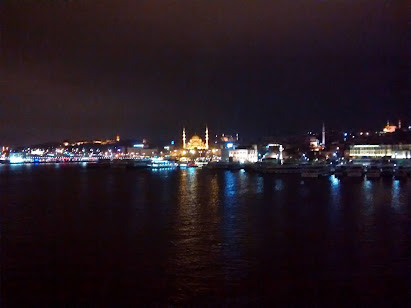Samos
We explored the island of Samos on foot today. The wooded mountains and terraced fields, criss-crossed by roads and tracks, are studded with monasteries. It is an empty and peaceful landscape and as we head westward towards Potami, now and then we come upon a waterfall where water cascades into inviting pools.
'Anyone for a dip?'
The foolhardy dip a toe but not for long. It is quite chilly.
'Nicer in August.'
'But more crowded.'
Indeed, we have this lovely island almost to ourselves. The tourist eateries down on the waterfront are largely shut up for the season but the locals are pleased to see us, to sell us meze and excellent Samos wine and to tell us what we must see and do. They direct us to the cave of Pythagoras who, it turns out, as well as being a philosopher, was a vegetarian and an advocate of communal living.
'Not the squaw and the hippopotamus bloke?'
?
'You know: the squaw on the hippopotamus is equal to the sum of the squaws on the other two hides.'
Indeed, Pythagoras was also a mathematician, one whose philosophising apparently upset the local ruler, Polycrates, so he had to escape to the hills and set up his school among the caves.
Sunday 14th
'Every time I go to an island it rains.'
'Britain is an island.'
'Exactly. QED'
The weather has spoiled but it is only showers and it gives us a good reason to walk uphill from the picturesque harbour town of Pythagorio, by way of the Roman Baths, to the Tunnel of Eupalinus. In the 6th century BC the people of Pythagorio decided to build themselves an aqueduct so they split into two teams and started digging, one from each end. By hand.
'And they met in the middle.'
It is not somewhere for the claustrophobic: you can stand up straight if you're not too tall and spread your arms out but it wasn't designed to be a place for a gentle stroll on a rainy day in February. It carried fresh water to the town for a thousand years, until the 7th century AD and the German archeologists only got to it in the 1970s (presumably on a day too wet to leave their towels on a sun lounger).
Rain patters into the puddles on the terraces of the harbour-side tavernas of Pithagorio. We try to pretend that we're not feeling the cold, that we're surprised to discover that the Aegean sea is not permanently bathed in sunshine. Good Greek food and wine, however, soon prove that we don't have to pretend that we're having a lovely time. Thakis and is wife Ralia, the owners of the taverna, tell us that the wine museum is well worth a visit, that they do very good wine tasting sessions there but unfortunately it is closed on Sunday.
'We can do wine tasting here in the taverna, today, now.' Thakis scowls with fierce pride and Ralia polishes up some more glasses.
'Samos is an island of inconceivable beauty because it combines mountains and the sea,' Thakis assures us.
We tell them we only have one more day here, since our ferry departs at 01.35 on Tuesday morning so we have to be on board before midnight. Thakis reaches for his mobile.
'Tomorrow the sun will shine,' Ralia exclaims, while Thakis brings up a number on speed dial. He speaks rapidly and nods at Ralia. 'My cousin Likou,' she says, 'will take you to see the honeybee hives on Mount Kerkis where the flowers give special complicity to the colour and aroma of the honey.'
'Complicity?'
'Many flowers, many aromas, no pesticides here. Very, hmmm, ethical honey.'
Thank you Ralia and Thakis. We look forward to meeting Likou.




Comments
Post a Comment